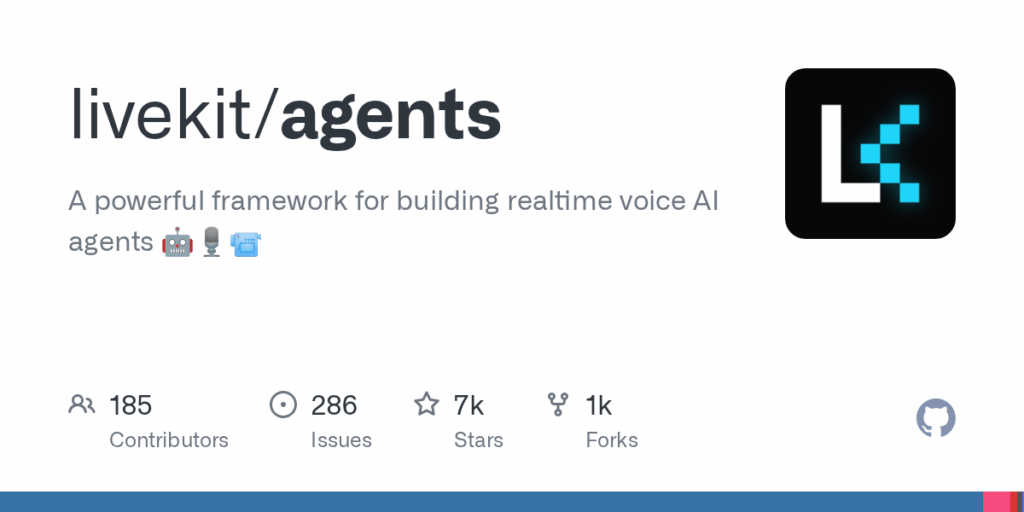agents
Basic Information
LiveKit Agents is a Python framework for building realtime, programmable participants that run on servers. It is intended for developers who need to create conversational, multi-modal voice agents that can hear, speak, transcribe, and optionally perceive media. The repository provides core abstractions such as Agent, AgentSession, entrypoint handlers, and Worker processes to manage live user interactions and concurrent sessions. It integrates speech-to-text, text-to-speech, large language models, and Realtime APIs so agents can be composed from modular plugins. The project includes examples for voice agents, multi-agent handoffs, transcribers, video avatars, telephony callers, and text-only bots. Documentation, example code, and runtime modes for local testing, development with hot reload, and production deployment are included to help teams iterate and operate agents connected to LiveKit servers or self-hosted deployments.








